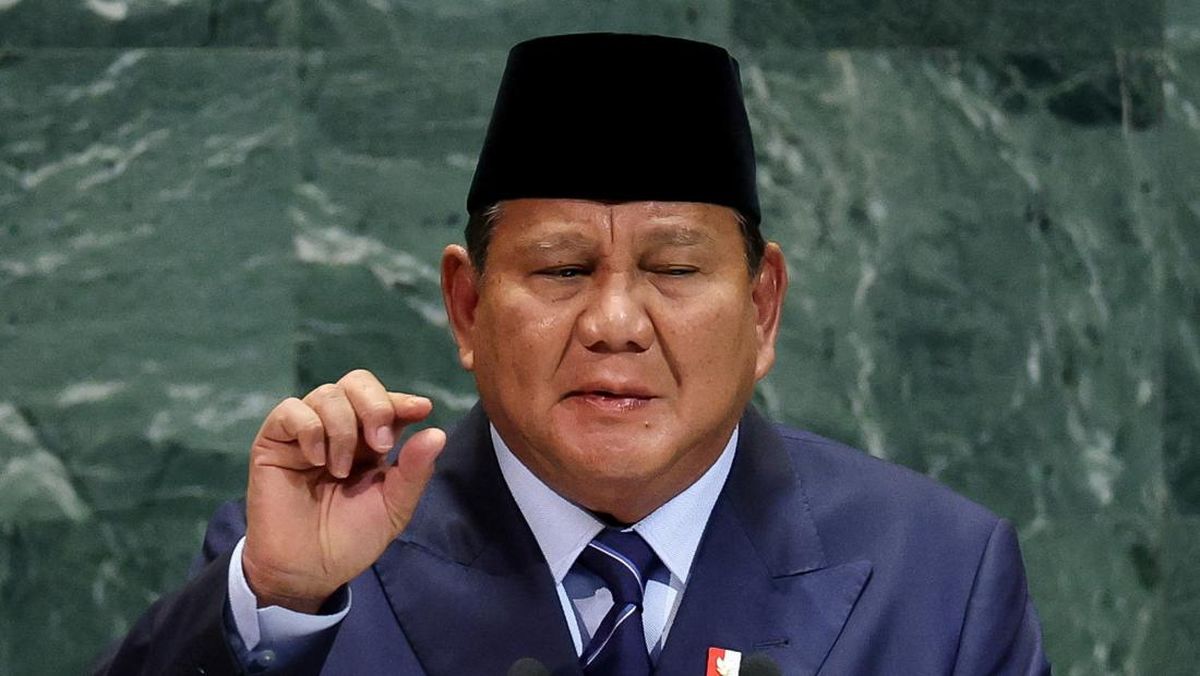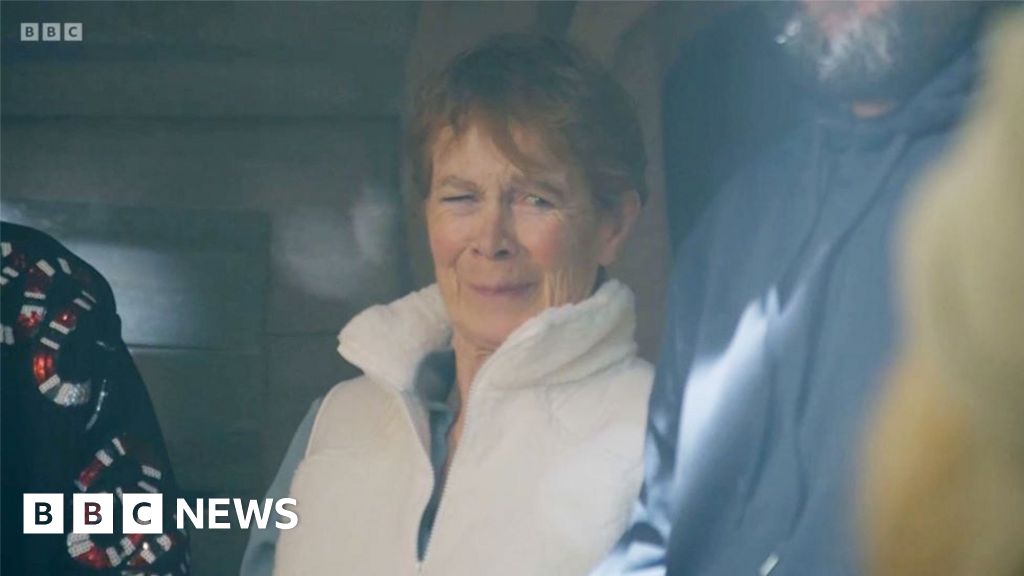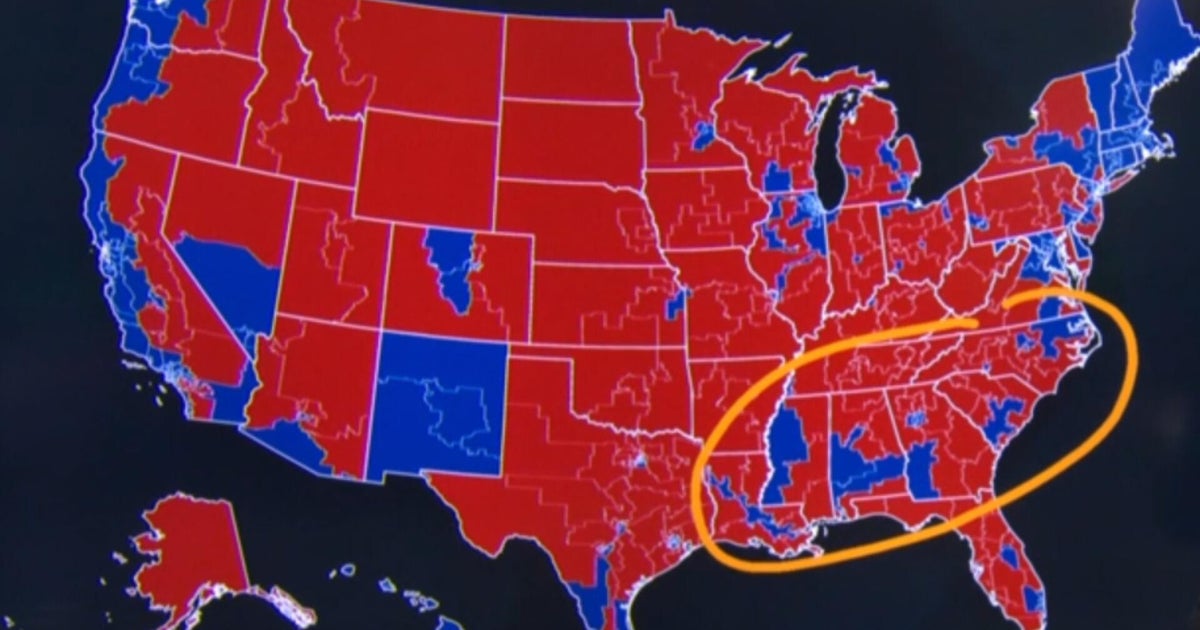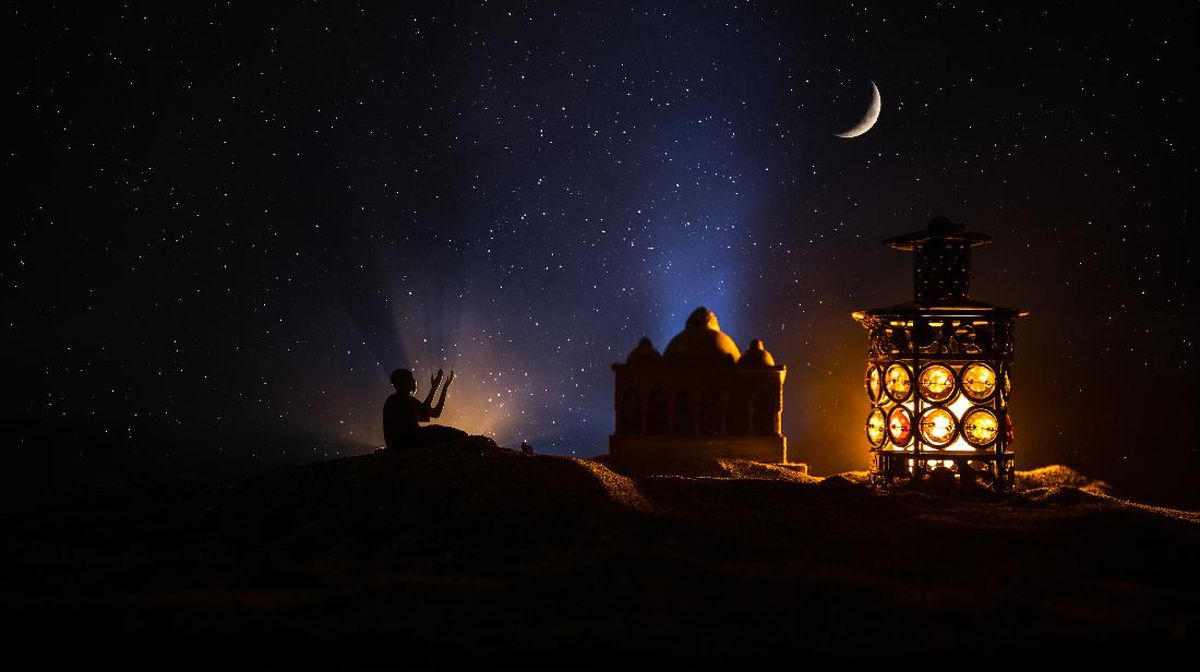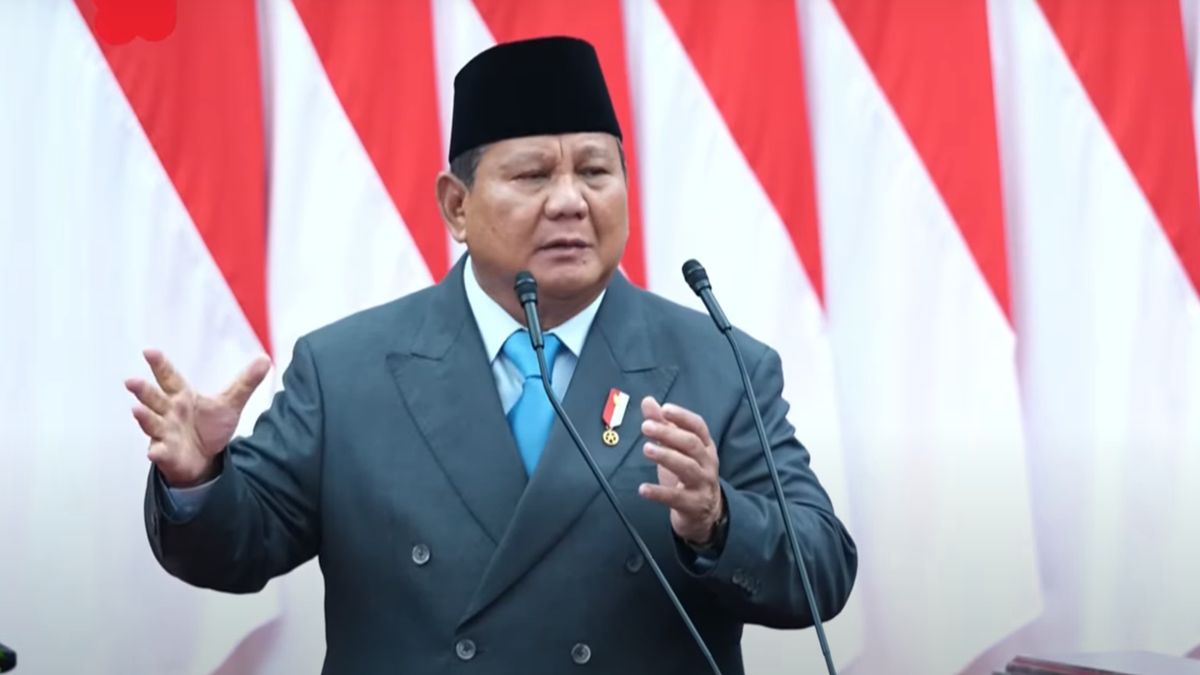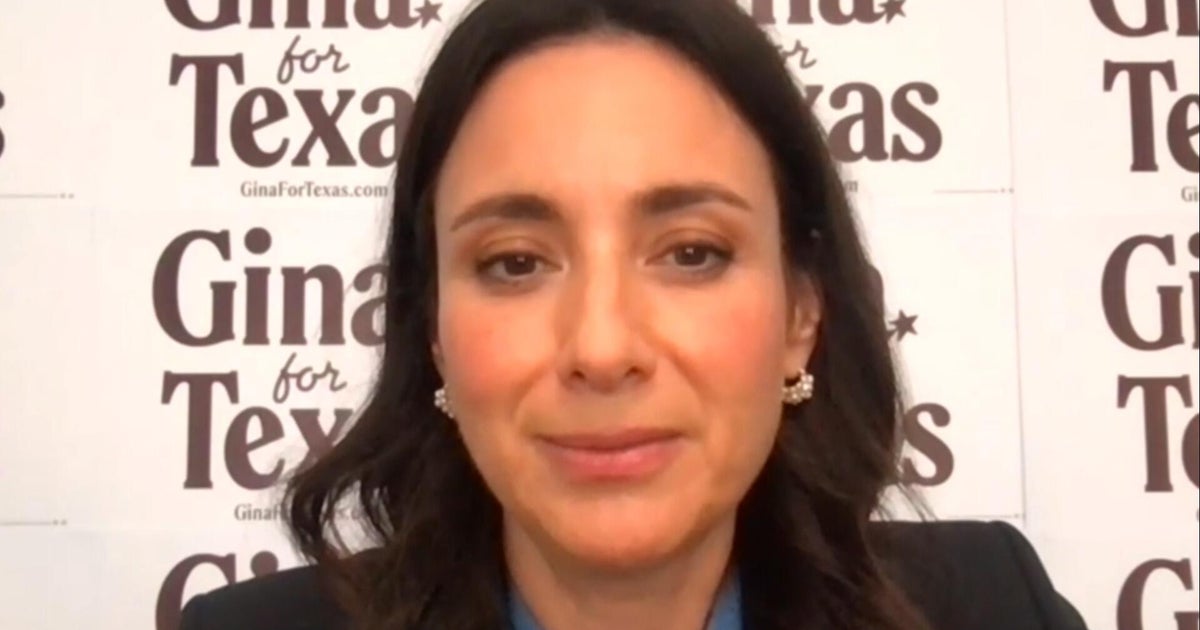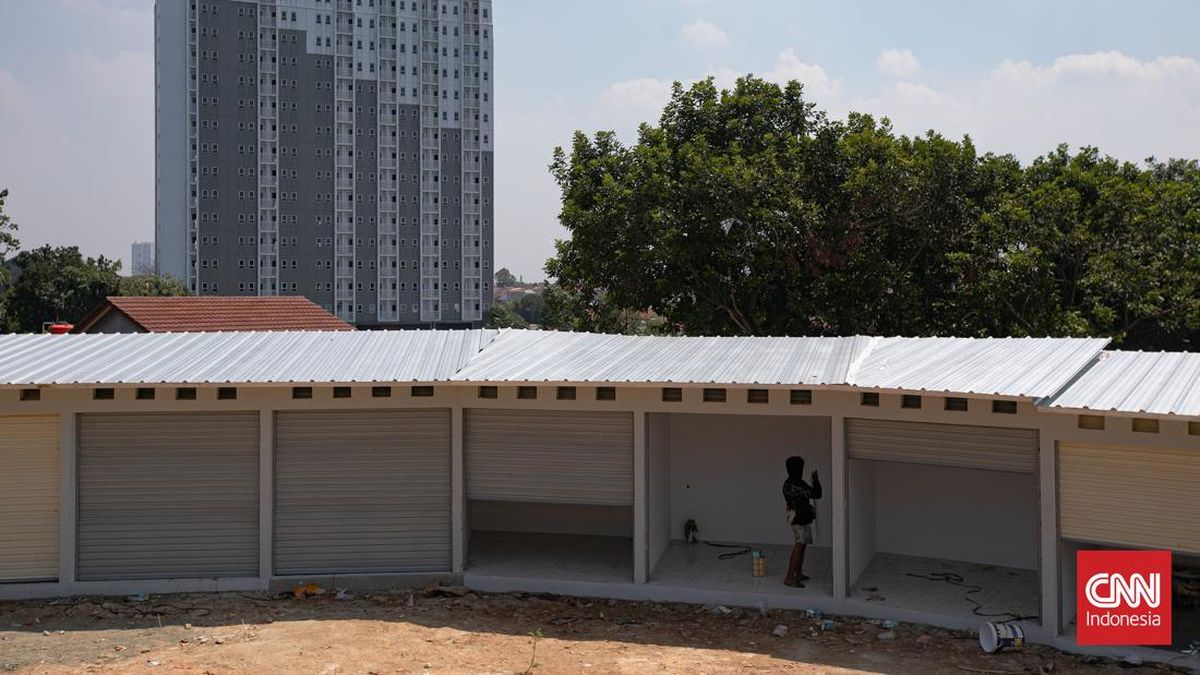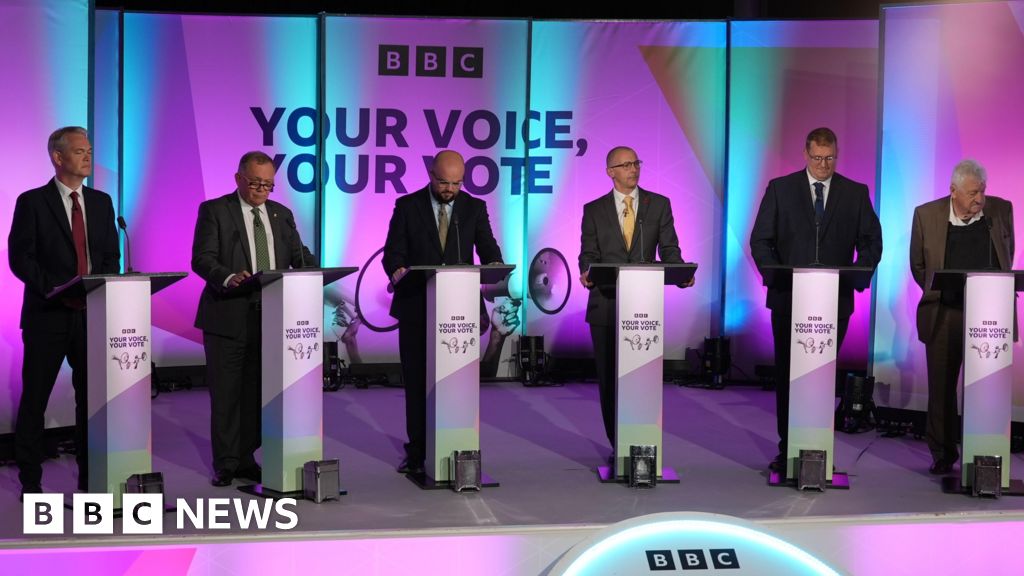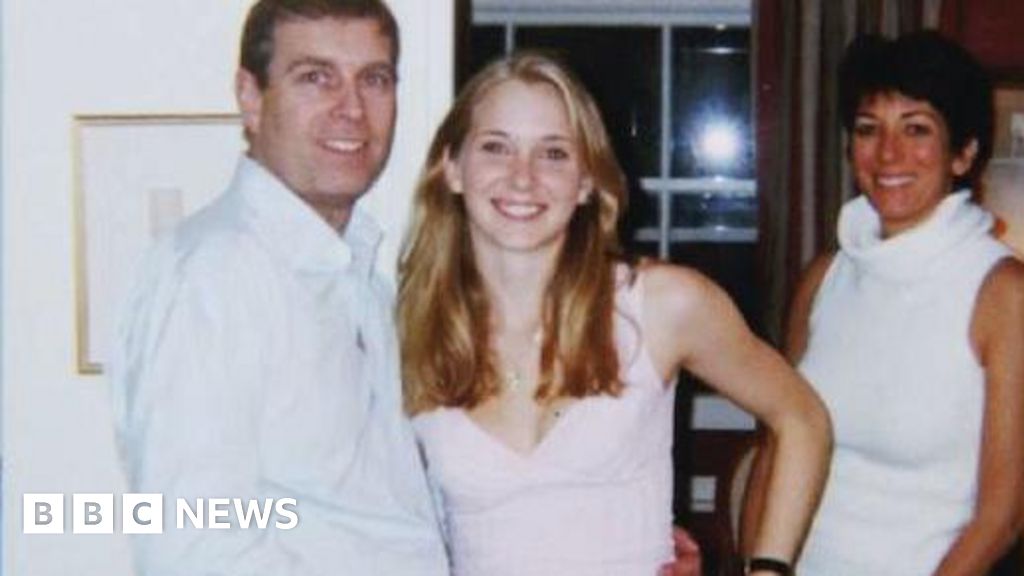Dominic CascianiHome and legal Correspondent, at Westminster Magistrates' Court

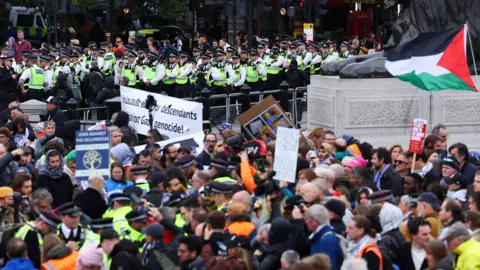 Reuters
Reuters
Protesters in London's Trafalgar Square on 4 October for a demonstration against the ban on Palestine Action
Twenty-eight people have pleaded not guilty after being charged under anti-terrorism laws with allegedly supporting the banned group Palestine Action.
In the first of a series of complex hearings on Wednesday, Westminster Magistrates' Court heard about 2,000 people are likely to be charged with showing support in demonstrations for the group proscribed as a terrorist organisation in July.
Judges face trying to find time and courtrooms to hold 400 trials of those accused of taking part in protests.
While the judge began setting provisional trial dates for March, there is no certainty they can take place before the end of 2026 because of the ongoing legal battle over the group's proscription.
The government proscribed Palestine Action under anti-terrorism legislation in July, after activists broke into an RAF base and damaged two military aircraft earlier in the year.
Since that ban more than 2,100 people have been arrested at demonstrations in England and Wales. Each of them has been accused of holding up a placard reading: "I oppose genocide, I support Palestine Action".
So far, some 170 of them - many of them pensioners - have been charged with displaying an item supportive of a banned organisation. This is a low-level terrorism offence which can be dealt with in a magistrates' court and can lead to six months in jail.
The first of two days of dedicated hearings to manage the cases dominated Westminster Magistrates' Court, as district judge Michael Snow set out how the courts would deal with all of them.
Most of the 28 defendants appearing, who were among those arrested at the first protests in July, did not have a lawyer. That meant many were often unclear about what was going on or had not had an opportunity to read the basics of the accusations they face.
Many complained to the court that their prosecution was unjust.
Anthony Harvey, 59, travelled from his home in Oban, in the Scottish Highlands, to deny supporting a proscribed organisation.
He told the judge: "Protesting against genocide is not terrorism, I'm not guilty."
The oldest defendant was 83-year-old the Reverend Susan Parfitt, from Bristol, who is partially deaf.
She gently held onto a hand rail in the courtroom as Judge Snow came down from the bench to sit next to her, so she could hear him.
When he asked her for her plea, she replied: "I was objecting against the proscription of Palestine Action and I therefore plead not guilty."
David Kilroy, 66, from Plymouth, wearing a Just Stop Oil t-shirt, told the court: "When injustice becomes law, resistance becomes a duty. Not guilty."
During the day, prosecutor Peter Ratliff told the court that there were difficulties in fixing firm trial dates from early next year for what could end up being 2,000 defendants because of the ongoing legal challenge to the banning of Palestine Action.
If that challenge overturns the ban, the prosecutions would almost certainly be scrapped. But if the ban remains there could still be complex questions over how the suspects can defend themselves.
Three lead cases, which came to court in September, are being prioritised to try to decide those questions - but any of these legal standoffs could end up before the Supreme Court.
If that happened, trials would have to be delayed, perhaps into 2027.
Judge Snow acknowledged the risk of having to revise plans for 2,000 defendants if the Supreme Court ultimately gets involved in the case – but he said he had to nevertheless set timetables. Courtrooms at Stratford Magistrates' Court in east London are being set aside to manage the cases.
That plan involves at least two trials a day of a total of 10 defendants, starting from 23 March. If the 2,000 defendant figure is correct, that would require at least 400 trials - or 200 full days of court time.
But on Wednesday defendants and a lawyer told the judge there was a risk the trials would be too short to be fair.
Katie McFadden, acting for some of the defendants, said that a half-day trial of five defendants at a time raised questions about whether that was enough time for them to individually give evidence, present their free speech arguments and be cross-examined.
Another suspect, 72-year-old Deborah Wilde, told the court: "I don't think I can get a fair trial on the [time] limit that you have allocated to me. I would like to seek leave to appeal."
Judge Snow told her that was not legally possible.
"I'm satisfied that the time is sufficient," he said. "I'm not allowing more time for the trial. Your only remedy is the High Court."
Another 30 defendants are due in court on Thursday to continue allocating trial dates.
On Friday, the Court of Appeal will rule on a government attempt to stop the challenge to Palestine Action's ban.
Separately in November, the first trial is due to begin of alleged Palestine Action members who are accused of offences, including violence, relating to the targeting of an Israeli defence firm.

 2 hours ago
4
2 hours ago
4

